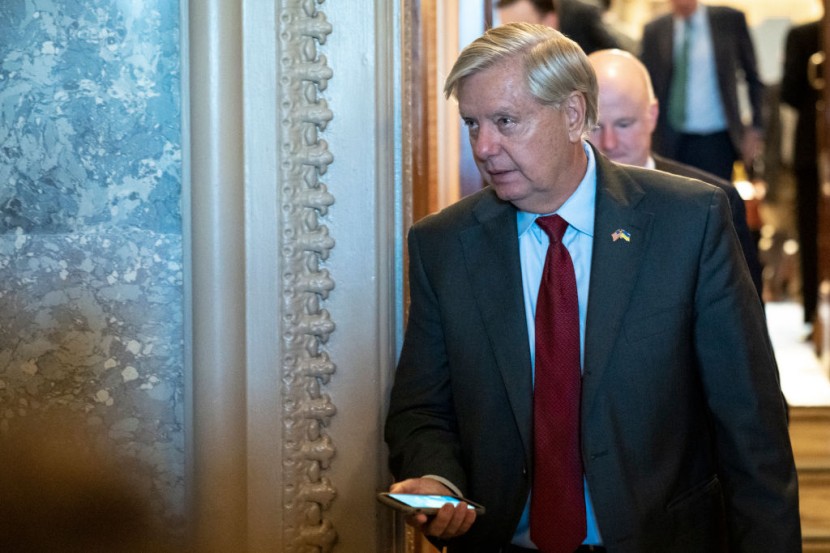
Republican Sen. Lindsey Graham of South Carolina has resisted testifying in former United President Donald Trump's investigation in Georgia by making a fresh argument regarding the case.
The GOP member said that phone calls he made to the state's top election official after Trump lost the 2020 presidential elections were just part of his job. Now, the South Carolina lawmaker is seeking to avoid or limit his testimony before a Georgia grand jury investigating efforts by Trump and his allies to overturn his 2020 presidential election loss.
Graham Resists Testifying in Trump's Georgia Investigation
Graham filed a brief in court on Wednesday expanding on his argument that two calls he made to Georgia Secretary of State Brad Raffensperger after the election are protected by the U.S. Constitution's Speech or Debate Clause.
In the filing, Brian Lea of Jones Day, Graham's lawyer, said, "The Constitution guarantees that a Senator 'shall not be questioned' about his protected 'Speech or Debate' - and yet the District Attorney insists that Senator Graham must submit to questioning to ascertain whether he can be questioned or is immune from questioning.' That makes no sense," as per Yahoo Finance.
On the other hand, Fulton County District Attorney Fani Willis has argued that the South Carolina lawmaker's testimony about the calls is crucial to the ongoing investigation and involved conduct that is beyond general protections shielding members of Congress from having to testify about their legislative activities.
United States District Judge Leigh Martin May rejected Graham's argument earlier this month, denying the Republican's motion to quash a subpoena and ordering him to testify. However, an appeals court put the ruling on hold and referred the case back to May for additional arguments on whether the clause applies to his calls.
According to CNN, the Republican lawmakers also asked the court to block questioning him of "other topics" suggested by outside groups that have weighed in on the dispute over the subpoena in friend-of-the-court briefs.
Invoking the Speech or Debate Clause
In his latest arguments on Wednesday, Graham said that Willis "should bear the burden of identifying the questions she wants to ask or, at a minimum, the specific topics she wants to cover." The South Carolina senator added that "if there is debate about whether those topics are permissible, she must offer evidence that those topics are not protected by the Clause."
Graham noted that to hold otherwise is to allow the District Attorney to evade the Speech or Debate Clause by requesting amorphous testimony and then spring new or elaborated questions or issues.
The situation comes after Graham's call to Raffensperger where he asked the secretary of state if there was a legal way, using the state courts, to toss out all mail-in votes from counties with high rates of questionable signatures.
The controversial call later triggered an ethics complaint, demands from the left for Graham's resignation, and a legal drama that is culminating only now, two years later after the fact, as the veteran Republican fights to avoid testifying before an Atlanta special grand jury, the New York Times reported.
Related Article:








